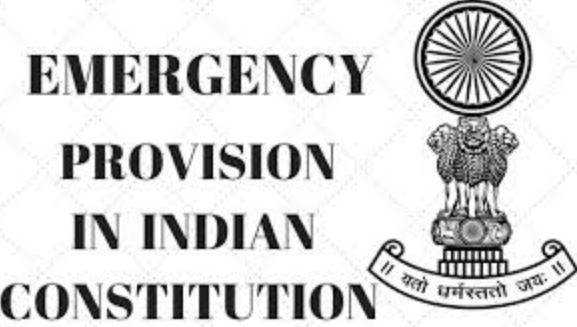Emergency Provisions in the Indian Constitution are derived from the Constitution of Germany. The Constitution of India provides for three types of emergencies. These are;
Types of emergency in India
(i) National Emergency in Article 352
(ii) State of Emergency in Article 356 (President's rule)
(iii) Article Emergency 360 Financial Emergency in the country
Article 360 gives the President the authority to declare a financial emergency. If the President is satisfied that a situation has arisen in the country that threatens India's financial stability, India's credibility or the financial stability of any part of its territory, he can declare a financial emergency on the advice of the Center. .
Under Article 356, President's rule can be declared on two grounds;
1. If the President; The Governor accepts the report that the State Government is not running according to the provisions of the Constitution.
2. If a state fails to follow or implement the instructions given by the Center.
The declaration of effect of the President's rule should be approved by both houses of Parliament (by a simple majority) within 2 months from the date of issue.
If it is approved by both the Houses of Parliament, then President's rule will continue for 6 months. In this way, how long president rule can continue can be done by doing 6-6 months.
Article 352 implied that the President may declare a national emergency if the security of the whole of India or any part of it is in danger due to 'war' - 'external aggression' or 'armed rebellion'.
On the basis of Article 352, the President cannot declare a national emergency until the Union Cabinet sends a proposal in writing to him.
This provision was added by the 44th Constitutional Amendment Act, 1978.
The resolution of such a proclamation will be required to be passed by a majority of the total number of members of each House of Parliament and a 2/3 majority of the members present and voting.
The declaration of national emergency is placed before each House of Parliament and if it is not approved within a month, it does not remain in enforcement, but once approved it can remain in enforcement for six months.
